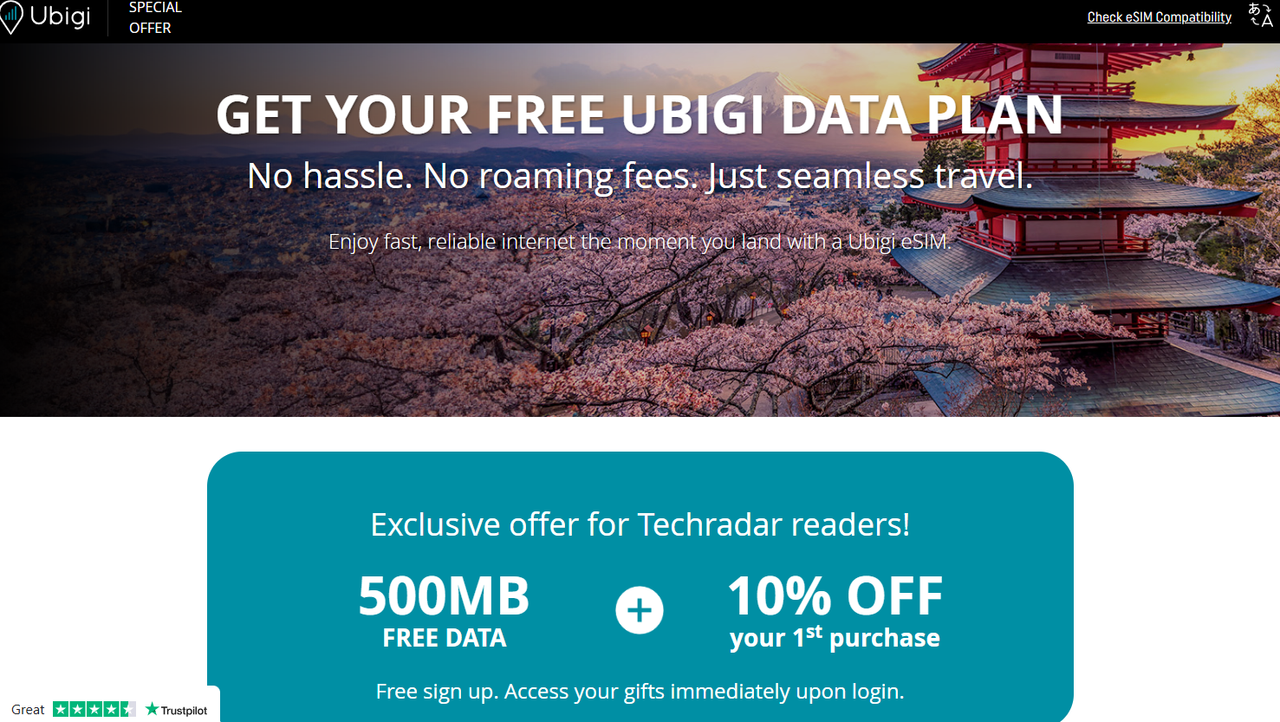The eSIM Revolution: A Digital Exodus for Travelers or a Corporate Trap?
In an increasingly interconnected world, the advent of eSIM technology has transformed the way we access mobile data while traveling. With the rise of eSIMs, users can now switch carriers without the need for a physical SIM card, enabling them to stay connected across borders with unprecedented ease. One of the most compelling offers currently available is from a top-rated eSIM provider that is giving away free data plans for Japan and 200 other destinations. New users can receive 500MB of free data, along with a 10% discount using an exclusive code. This initiative raises several important questions about the implications of such offers for consumers and the broader telecommunications industry.
The eSIM technology itself is a game-changer. Unlike traditional SIM cards, which require physical swapping, eSIMs are embedded within devices and can be programmed remotely. This flexibility allows travelers to choose local data plans upon arrival in a foreign country, often at a fraction of the cost of international roaming charges imposed by their home carriers. As a result, eSIMs have gained popularity among frequent travelers, digital nomads, and anyone looking to avoid exorbitant fees while staying connected abroad.
However, the introduction of free data plans, while enticing, also invites scrutiny. Critics argue that such offers may serve as a gateway for companies to lock users into their ecosystems. By providing initial free data, these companies can gather valuable user data, build brand loyalty, and ultimately convert users into paying customers. This strategy mirrors tactics employed by various tech giants, which have faced backlash for prioritizing profit over consumer privacy and choice.
The telecommunications industry has long been characterized by fierce competition, and the emergence of eSIM technology has only intensified this rivalry. Established carriers are now forced to adapt to a landscape where consumers have more options than ever before. The ability to switch carriers with ease has led to a race to offer the most attractive deals, including free data plans. However, this competition can also lead to a dilution of service quality, as companies may cut corners to maintain profitability while offering enticing promotions.
Moreover, the implications of free data plans extend beyond individual consumers. As more users adopt eSIM technology, there is a potential for significant shifts in market dynamics. Smaller carriers and new entrants may find opportunities to disrupt the status quo, challenging the dominance of established players. This disruption could lead to more competitive pricing and better services for consumers, but it also raises concerns about the sustainability of smaller companies in an industry that has historically favored larger corporations.
The global landscape of mobile data usage is also evolving. With the rise of remote work and digital nomadism, the demand for reliable mobile connectivity has surged. Travelers are no longer just tourists; they are increasingly working from various locations around the world. This shift has prompted a reevaluation of how mobile data is priced and packaged. Free data plans, like the one being offered, cater to this new demographic, but they also highlight the need for a more comprehensive understanding of consumer needs in a rapidly changing environment.
Furthermore, the environmental impact of eSIM technology cannot be overlooked. As consumers shift away from physical SIM cards, there is potential for a reduction in plastic waste associated with traditional SIM production. However, the overall environmental footprint of eSIMs, including the energy consumption of data centers and the production of electronic devices, remains a critical consideration. Companies promoting free data plans must also address their environmental responsibilities, ensuring that their growth does not come at the expense of sustainability.
As the telecommunications industry continues to evolve, the introduction of free data plans through eSIM technology represents both an opportunity and a challenge. While these offers can provide immediate benefits to consumers, they also raise important questions about privacy, competition, and the long-term implications for the industry. The balance between enticing promotions and ethical business practices will be crucial as companies navigate this new landscape.
In conclusion, the eSIM revolution is reshaping the way we think about mobile connectivity. The allure of free data plans is undeniable, but consumers must remain vigilant about the potential consequences of such offers. As the industry adapts to these changes, it will be essential to prioritize transparency, competition, and sustainability to ensure that the benefits of eSIM technology are realized without compromising the interests of consumers or the environment.




